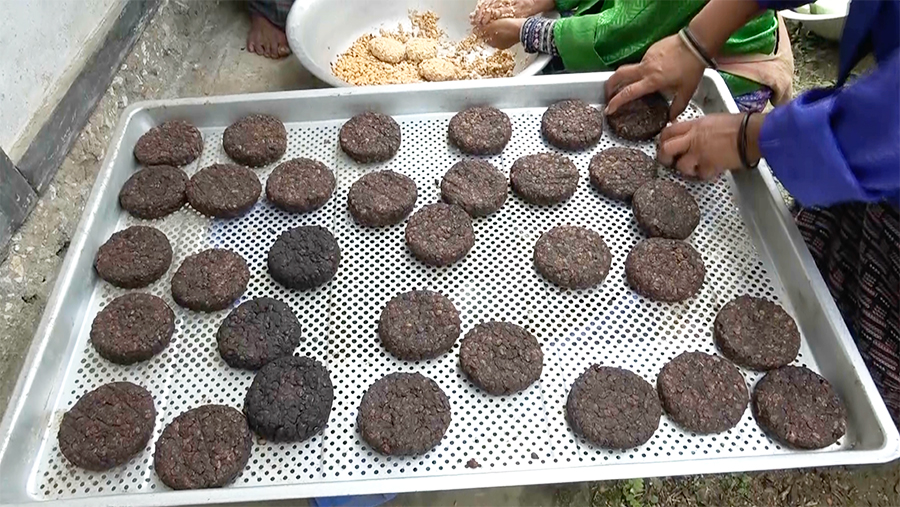
Fermented soyabean, locally known as Libe Yidpa, is a traditionally valued plant-based food for Dechhenling residents in Pema Gatshel. The cherished food is bringing new hope to a group of farmers there. After years of struggle with poor harvests and limited production, the Shingchongri Soyabean Fermentation Group is experiencing better yields and higher income.
The group members are preparing to boil soybeans harvested from their fields.
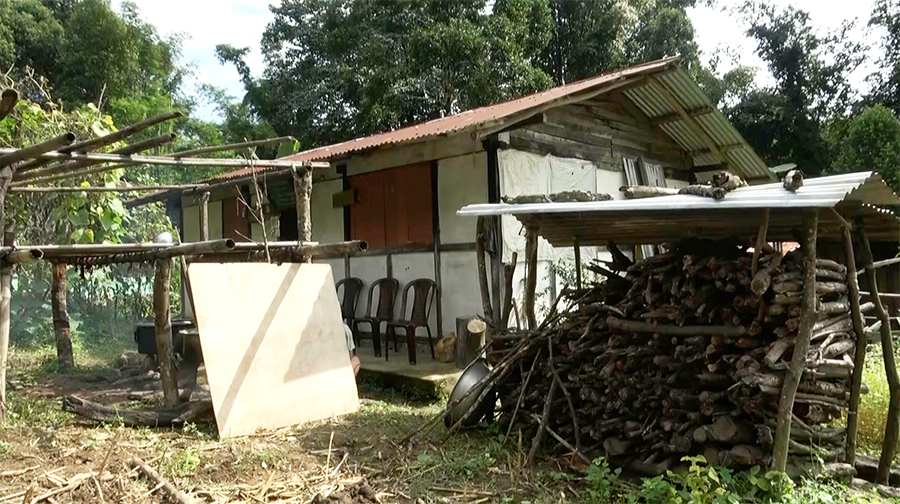 While this year’s production is not up to their expectations, farmers are content with the improved yield compared to the previous years.
While this year’s production is not up to their expectations, farmers are content with the improved yield compared to the previous years.
Sonam Wangmo, the Chairperson of Shingchongri Soyabean Fermentation Group said “The soyabean production was poor for the past three to four years, and we faced many challenges. But this year, the harvest has improved, and we are happy with the better production.”
Yuden, a group member said “In the past, we couldn’t harvest much. The plants died during the fruiting stage, and we didn’t get enough yield. This year, however, things are looking better. I’m happy because we’ve had a better harvest.”
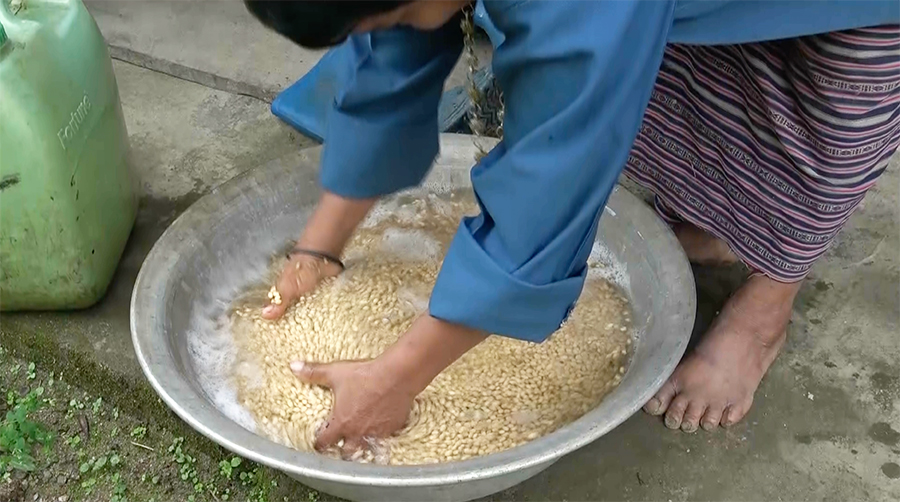 The group starts by washing soybeans thoroughly before boiling.
The group starts by washing soybeans thoroughly before boiling.
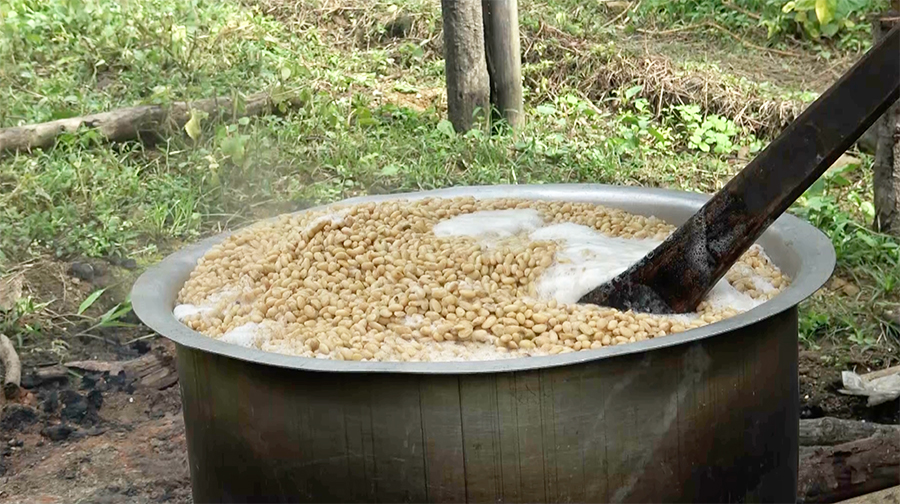 They then immerse the beans in hot water and cook for more than three hours.
They then immerse the beans in hot water and cook for more than three hours.
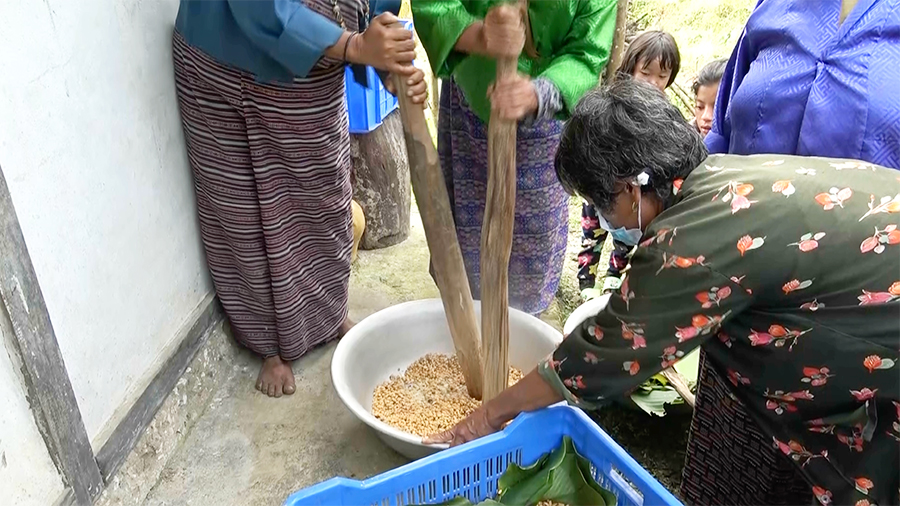 The entire process is done manually. However, according to the members, many of them are elderly, and the process is becoming increasingly difficult.
The entire process is done manually. However, according to the members, many of them are elderly, and the process is becoming increasingly difficult.
They are considering using a rice cooker in the future if it proves effective.
Yuden said “We face a lot of hardship collecting firewood and drying the beans. As women, it’s particularly challenging to gather firewood from the forest, so we have to hire labourers to help us.”
Dawa Seldon, another member said “Working in the smoke is tough. It irritates our eyes, and during the hot season, we also have to endure the heat of the sun and the fire.”
To ferment soyabeans, the group uses leaves of Canna Discolor, a perennial plant, which they believe enhance the flavour of the fermented soybean, which looks like cheese.
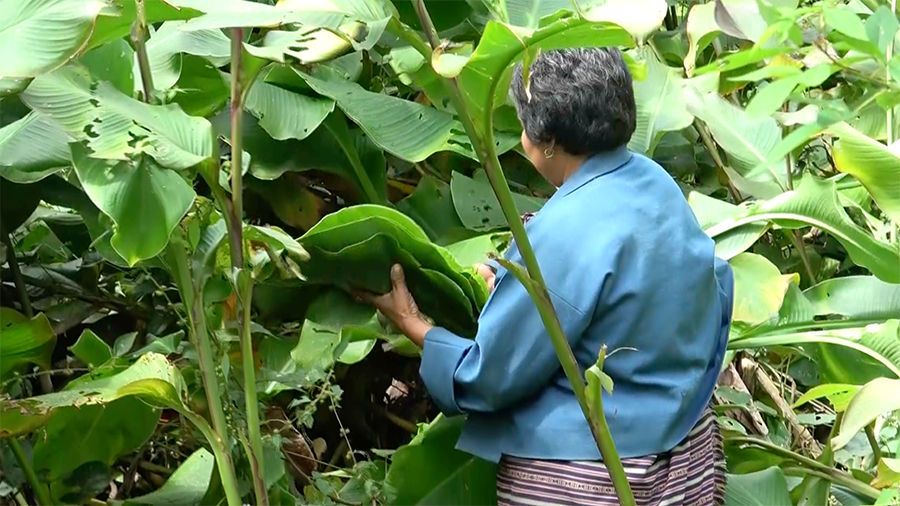 The beans are wrapped in the leaves and stored in a container for up to a week to ferment. Afterwards, the beans are crushed to complete the fermentation process.
The beans are wrapped in the leaves and stored in a container for up to a week to ferment. Afterwards, the beans are crushed to complete the fermentation process.
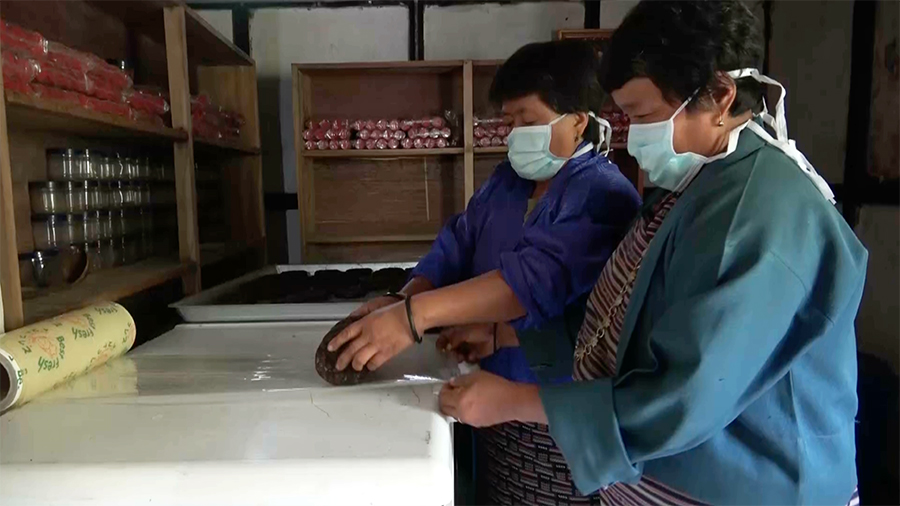 The group members are determined to make their operation sustainable, as they face no issues with the market.
The group members are determined to make their operation sustainable, as they face no issues with the market.
They are also encouraging their children to carry forward this age-old tradition.
Sonam Wangmo, Chairperson of Shingchongri Soyabean Fermentation Group said “As many of us are illiterate, it has been difficult to manage the business, especially when it comes to record-keeping and other tasks. That’s why we encourage our children to follow in our footsteps. We’ve already started the business, and they can continue it as a job opportunity.”
A group member, Dawa Seldon said “We always tell our children that it’s better to do something, to make your earning. Now, that the business is established, they can start producing directly. Some of them are willing to follow, while others are not as interested.”
The only challenge the group faces is in growing soyabean. They are open to purchasing soybeans from other sources.
However, they face difficulty in sourcing soyabeans locally, as many individuals in the community process them on their own.
The Shingchongri Soyabean Fermentation Group was established in 2012 and remains one of the oldest groups in the gewog.
Currently, the group consists of five members. They sell the fermented cheese for Nu 50 per ball.
Thinley Dorji, Pema Gatshel
Edited by Phub Gyem










